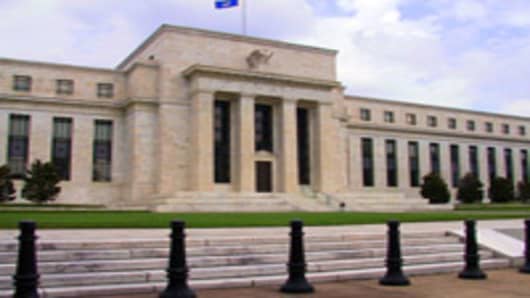2) because of that concern, the threshold for action on inflation is now higher. Gundlach believes the Fed will not act unless CPI is over 4 percent. It is already above their price of 2 percent, but the Fed is insisting that rise is "temporary"
What about the big rise in necessities like milk and gasoline? Isn't that inflation? Gundlach says it is, but there is no inflation in the two most important indicators: wages and housing. That’s giving the Fed cover.
3) there may be one more Treasury bond rally, but even if there is one, you make very little money.
How do you get out of this? The dream scenario that would balance the budget in about 12 years: Get nominal GDP growth of 6 to 7 percent, with a freeze on U.S. government spending, while keeping rates low.
Good luck with that.
And your new market leader is: real estate investment trusts (REITs). That's right: the MSCI REIT Index, a basket of REITs, is at a 4-year high. REITs are commercial real estate companies that own and invest in real estate on behalf of their investors.
What's going on? REITs have been the most direct beneficiaries of the Fed's policy of low interest rates. They have been able to refinance their debt at considerably lower rates. Relatively high dividend payouts of two to four percent also attract the dividend crowd.
But it's the improving fundamentals that are the key:
1) apartment rentals have been exceptionally strong, with rising rates and occupancy
2) high quality malls are recovering, with new retailers replacing older ones
3) business travel has improved hotel occupancy rates, though leisure travel is still lagging
The one area still lagging: suburban office space. There's just too much of it.
And your new laggard is: big-cap financials. Ever since earnings season began, all the big names have lagged and are doing so again: Morgan Stanley , Goldman Sachs , Citi , JPMorgan .
_____________________________
Bookmark CNBC Data Pages:
_____________________________
Want updates whenever a Trader Talk blog is filed? Follow me on Twitter: twitter.com/BobPisani.
Questions? Comments? tradertalk@cnbc.com




